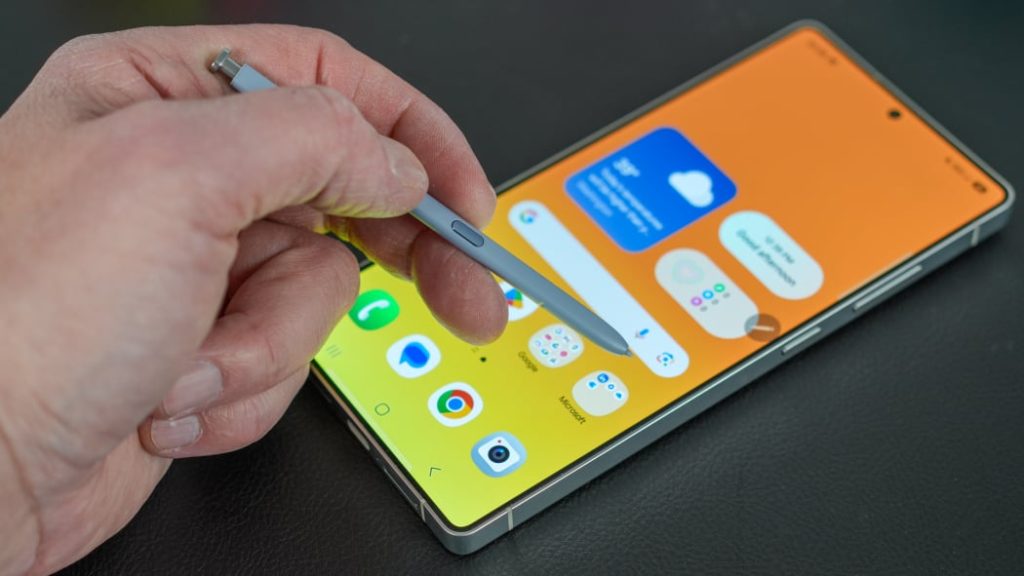News Investigators/ Some mothers have cautioned parents against giving their children and wards unhindered access to the internet, emphasising the importance of maintaining moral values.
They said this advice became necessary to promote healthy and responsible behavior among children, especially those under 18 years of age.
Speaking in separate interviews with the News Agency of Nigeria (NAN) on Sunday in Lagos, the respondents warned that failing to monitor children’s smartphone use could have serious consequences.
Mrs Olubukola Aladeusi, a teacher, stressed the need for responsible parenting to address the potential risks associated with smartphone use among children.
She recommended that children under 16 years old should not own a smartphone to safeguard their well-being and encourage responsible behavior.
“Instead, parents can provide access to a phone strictly for educational purposes and under close supervision,” she said.
“Phones can be used for assignments, research, and educational activities.
” Parents should closely monitor usage during school days and limit access to specific times.
“During holidays, children may have more access, but with regular supervision. Parents should know all passwords and monitor phone activities.
“They should also install software to track phone usage, limit access to certain apps, and block inappropriate content,” she added.
Aladeusi noted that only educational apps should be allowed on children’s devices.
Parents, she said, must regularly review installed applications and remove any non-educational or inappropriate ones.
According to her, establishing clear guidelines helps children develop healthy phone habits.
“By implementing these rules, parents can reduce potential risks and ensure their children use smartphones responsibly,” she added.
Also speaking, Ms Bolanle Yusuf, a mother, advised parents to be deliberate and concerned about how teenagers used smartphones, noting that “adolescence is a critical and formative stage in life”.
She said phone usage should be based on a child’s maturity level rather than current trends or peer pressure.
“Sincerely, I don’t see the need for a secondary school student to own a smartphone.
“Any important information can be sent to the parent’s phone, and if a phone is necessary, it should be monitored and controlled by an adult,” Yusuf said.
“The problem now is that many smartphones require passwords or security codes.
“That’s fine, but the rule should be: I must know the password. If I can’t access the phone, it will be confiscated. This helps prevent children from secretly changing it.
“Parental controls should be enabled so that certain apps can’t be downloaded, and some websites can’t be viewed without parental approval.
“There should be clearly set rules regarding phone use, and disobedience must come with consequences.
“Action and reaction are equal and opposite — if they break the rules, they must face the consequences accordingly,” she added.
According to the Nigerian Communications Commission(NCC)’s research, 93 per cent of children are exposed to online risk.
It said Nigerian children between the age range of 11-16 years faced huge risks online as 93 per cent of them go online using their mobile phones without any safeguard.
” This is according to the findings of research conducted by the NCC.
The survey research, which focused on two age ranges, 11-16, and 4-10 years also found that 45 per cent of children in the latter age range also went online with their mobile phones indicating a high rate of phone ownership among children in Nigeria.
According to the report, 7,013 respondents were surveyed across Nigeria. While the respondents included children, parents, and teachers, 5,681, representing 81 per cent were children.
“The least popular means of access to the Internet for both age groups is the school.
“The implication of this is that children often go online mostly through means that are not as actively moderated as either the Internet café or the school.
“The aggregate effect is that children are inadvertently exposed to more online risks than would have been the case were they to use their schools’ devices to get online,” the report stated.
The NCC’s research also highlighted the various risks faced by children online.
According to the report, the survey discovered that unwanted sexual approach in a chat room, social networking site, or email was considered as the biggest threat online by 97 per cent of the 11-16 year-olds in Nigeria.
“This is followed closely by being sent sexual images or content at 89 per cent.
“Cyberbullying incidentally, is not a threat rated highly by the children as only 30 per cent considers it a threat worth worrying about.
It said “the children also do not consider the possibility of someone taking unwanted photos of them and circulating them online as a major concern hence only 35 per cent put it forward as a threat.”
The report recommended that Mobile Network Operators in the country should ensure content was classified in line with existing national standards of decency and appropriateness to identify content unsuitable for viewing by children.
It also advised the network service providers to provide appropriate means for parents and schools to control children’s access to content classified as only suitable for adult customers in equivalent media.
Schools and teachers were advised to develop educational materials for parents and guardians on how they could support young children in learning and acquiring digital and critical thinking skills for a balanced life.
“They are also to develop and promote communication strategies outlining how parents can talk to young children about managing online risks and actively mediate their use.”
According to the report, parents should set reasonable rules and guidelines for computer use by their children.
“Discuss these rules and post them near the computer as a reminder; remember to monitor your children’s compliance with these rules, especially when it comes to the amount of time your children spend on the computer.
“A child’s excessive use of online services or the Internet, especially late at night, may be a clue that there is a potential problem,” it warned
NAN
